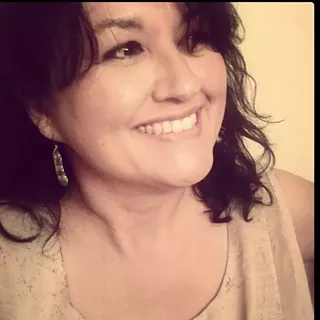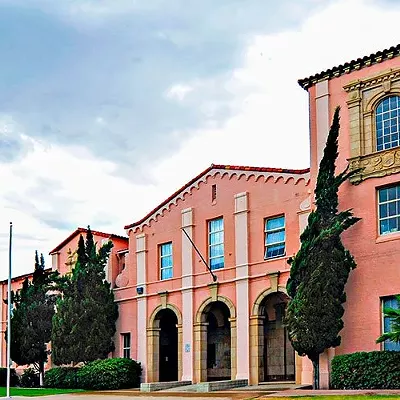For most supporters of the Tucson Unified School District's dismantled Mexican-American studies program, Friday, July 13, wasn't a day to expect bad luck. It was a day of hopeful anticipation that a court-appointed desegregation expert would begin a process to return the classes in time for the upcoming school year.
But those hopes were dashed when U.S. District Judge David C. Bury, on the advice of Willis Hawley, Bury's appointed desegregation expert, issued an order that delayed the process and set a new schedule that goes into October.
When Hawley was appointed by Bury in January as the special master charged to develop a new desegregation plan for the school district, he was given a six-month deadline. A proposed plan, it was explained, would be unveiled July 13 that would kick off a series of communitywide forums before Bury adopted a final plan.
The 38-year-old desegregation case began when two families—the Fishers, representing African-American students, and the Mendozas, representing Mexican-American students—filed a lawsuit to force the district to change discriminatory practices and policies. Although a settlement was reached in 1978, legal maneuvering continued until Bury approved the deseg plan that TUSD adopted in 2009. On Aug. 10, 2011, the 9th U.S. Circuit Court of Appeals remanded the case for further judicial oversight when plaintiffs contended that not much had changed since the deseg plan's adoption. Bury was forced to appoint Hawley to bring the district into compliance.
Since his appointment, Hawley has met with plaintiff representatives and community members to discuss TUSD desegregation issues, as well as Mexican-American studies. According to district court documents, on July 12, Hawley wrote to Greer Barkley, Bury's law clerk, asking that the July 13 deadline be changed and a new process begin that would include forcing all parties in the desegregation case to sit down and negotiate for two full days.
The parties working with Hawley include TUSD and the U.S. Department of Justice, as well as attorneys from the Mexican American Legal Defense Educational Fund, or MALDEF, representing the Mendoza plaintiffs, and the law office of Rubin Salter, representing the Fisher plaintiffs.
In Hawley's July 12 letter, he wrote that on July 13, he would file a draft unitary status plan with Bury, but that the plan and all communications, documents and negotiations submitted to the court "shall be privileged and confidential and shall not be shared outside the Parties."
On July 29, at a presentation on the history of TUSD's desegregation issues, Sylvia Campoy made it clear before her presentation that she has seen a desegregation proposal submitted to the court and to the parties. But she said she is not allowed to comment on the proposal, share details of the plan or provide details on the status of negotiations.
Campoy, who has a long history in TUSD as an educator, a former governing board member and civil rights expert, represents the Mendoza plaintiffs legally represented by MALDEF in the ongoing desegregation case. Campoy confirmed that Bury's order required two full-day meetings at Hawley's request, but those meetings have yet to be scheduled.
Campoy also provided Bury's timeline, which is public record in Hawley's letter and Bury's July 13 order. In Bury's order, a Sept. 10 deadline is set for Hawley to provide all the deseg parties with a plan to begin negotiations. The confidentiality provision that currently prevents Campoy and all parties from discussing Hawley's plan and negotiations will be lifted on Sept. 21, and a public-comment period will begin. From that point, all parties have until Oct. 12 to file any unresolved objections with the court. All proposed changes to the plan must be filed with the court by Oct. 22.
Bury, in his order, has scheduled public hearings from Oct. 10 through Oct. 12, when the public comment period closes.
On May 10, Arizona Attorney General Tom Horne, author of the law that ended TUSD's Mexican-American studies program, filed a complaint and motion arguing that Hawley's new deseg plan should not include Mexican-American studies or restore the classes in TUSD, claiming that it would violate the law.
MALDEF successfully challenged Horne's intervention, and in June, Bury barred the state from intervening. Horne asked the court to reconsider, but on Monday, July 30, Bury filed an order denying Horne's attempt.
But that doesn't mean Horne won't be allowed to share a formal opinion in Bury's court. In Bury's July 13 order, Horne is allowed to file an objection by Oct. 5 to any Mexican-American studies courses that may be included in the final plan. The state isn't included in negotiations, but it can provide an opinion after the legal parties have negotiated the deseg plan.
Bury wrote in his July 30 order, "The Special Master remains available to meet with the state to discuss its concerns, which he is fully capable of representing to the parties as they proceed over the course of the next 60 days to identify areas of agreement and disagreement."
TUSD is going through a process to address a $17 million deficit and is working with the U.S. Civil Rights Division to address four civil-rights investigations.
During a series of special meetings held this summer before the TUSD governing board, components of a school master plan regarding the possible closure of more TUSD schools and construction of larger, more centralized schools were presented. In order to pay for construction of those larger schools, a 2013 bond proposal has been part of past discussions with the board.
At the July 24 meeting, part of a school master plan was presented to the board by TUSD planning program manager Bryant Nodine, who explained that "what we're here for is to handle a short-term issue ... the $17 million deficit."
Besides school closures, Nodine said, TUSD has other options—chartering schools and consolidating schools—while addressing academic and diversity goals that are established in TUSD's deseg plan. Special master Hawley, he said, will be involved in the process.
Community forums will begin in August and go into November, with a final plan developed in December. The public process includes focus groups with community leaders, principals, employee groups, standing committees, boundary committees and staff and parents of affected areas.
The first forums proposed are Aug. 20 at Sahuaro High School, Aug. 22 at Pueblo Magnet High School and Aug. 25 at Catalina Magnet High School.
When Campoy was asked for her opinion on the school district's master plan at her desegregation presentation, she suggested the community look closely at the ethnic makeup of schools up for closure.
"Closing schools is never a good idea," she said, because it divides communities and neighborhoods, and upsets kids.










